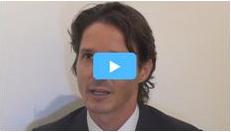Advertisment
ESOT 2015: Social media and transplantation: an ethical point of view. Professor Stefan Schneeberger, (Innsbruck, Austria) discusses the futuristic plenary session he chaired at ESOT on social media, big data and how we can make use of these new technologies to advance patient care in transplantation.

by Maria Dalby: Social media platforms offer unprecedented opportunities for direct and personal communication with large groups of people. However, in the field of transplantation, social media opens up the prospect of ethical dilemmas for which our existing guidelines and frameworks have no answer. Adam Peña from Houston, Texas is a specialist on medical ethics; in a plenary session entitled Transplantation 2.0.15 he discussed the ethical issues that may arise from the potentially conflicting interests of social media and the transplantation community.
Social media such as Facebook are entirely founded on values of interconnectedness, sharing, personal relationships and immediacy. The core values of organ transplantation, on the other hand, are public trust, justice, solidarity, privacy and professional integrity. Whilst these sets of values may not be incompatible there is a degree of competition. Social media is used increasingly in transplantation, for information sharing and discussion and to promote organ donation – but also for directly soliciting donors which is much more controversial. In most developed countries, organ procurement is subject to strict regulations to ensure the quality and safety of organs and the fairness of the allocation process. However, these frameworks take no account of the impact of social media and the directives focus, amongst other issues, on preventing violations of physical integrity, autonomy or human dignity for the purpose of organ trafficking. One key characteristic of social media is the complete lack of oversight of user-generated information; in theory there is nothing to stop anyone from creating a fake Facebook profile and use this for organ trafficking. Another major concern in the EU directives is comparable advantage – organs are allocated according to a medical model based on urgency and outcome. If social media is allowed to become an established platform for soliciting donors, this opens up for decisions to be made on moral grounds and based on personal biases which could disrupt the existing distribution schemes.
A further concern is the propagation of misinformation and the impact this may have on public trust in the transplantation community. The current system relies on donors and recipients having access to appropriate and accurate information to allow informed decisions to be made. Again, the lack of oversight of information promulgated on social media may cause myths to be spread, potential donors may be put off and people’s sense of solidarity with the transplantation community may weaken. To address these concerns within the context of social media, Adam Peña called on professional transplantation societies to develop statements on the ethically appropriate use of social media to create consensus; to collaborate with the leaders of social media outlets to promote ethically appropriate social media use and direct users to websites where the information provided is subject to quality control and oversight; and to exploit the privacy settings on eg Facebook to create safe online communities for networking and information sharing. Transplantation professionals need to be aware of the ethical concerns with social media, but also its potential for creating awareness and increasing organ supply.
Adam Peña, Baylor College of Medicine, Houston, Texas, USA





